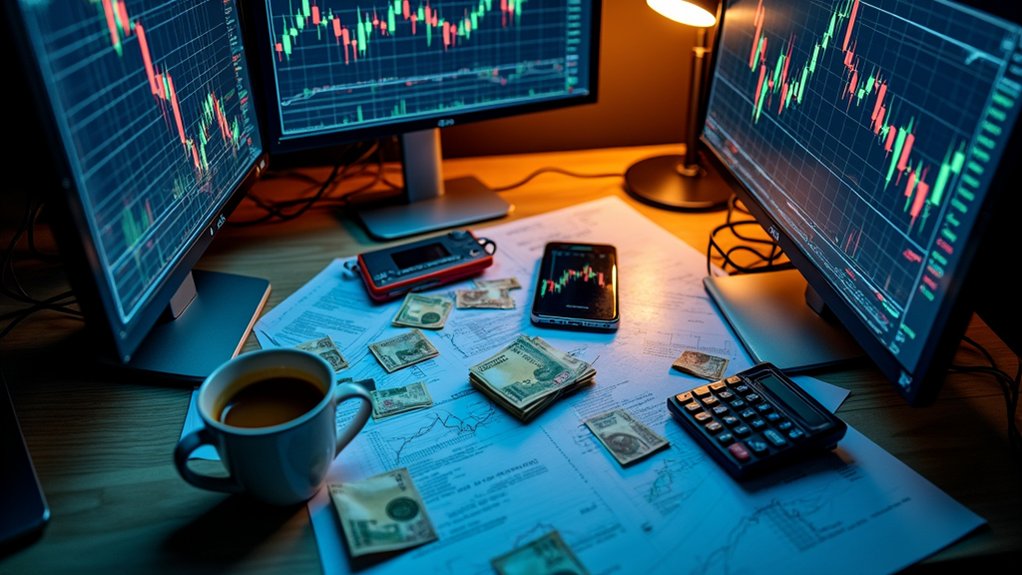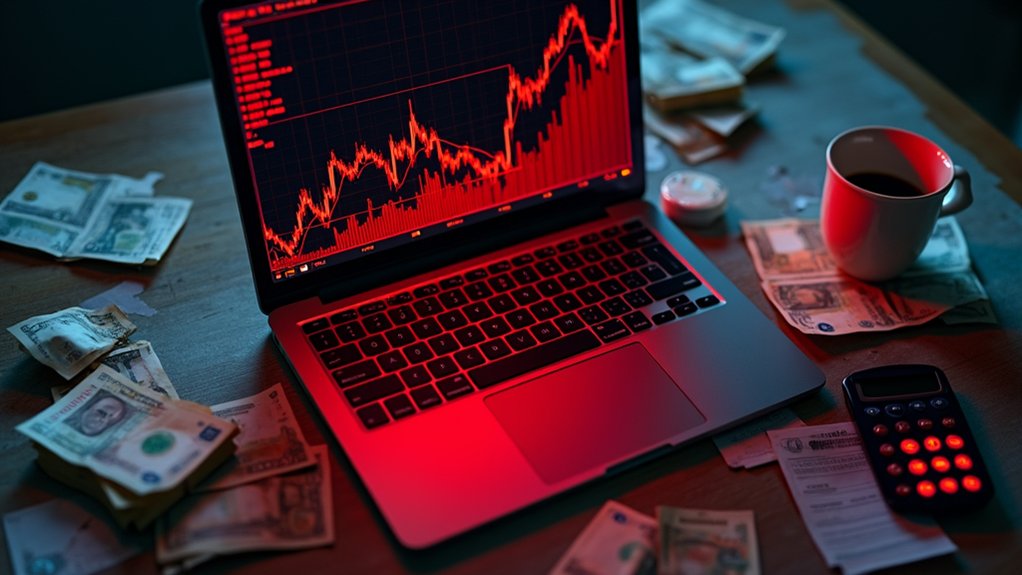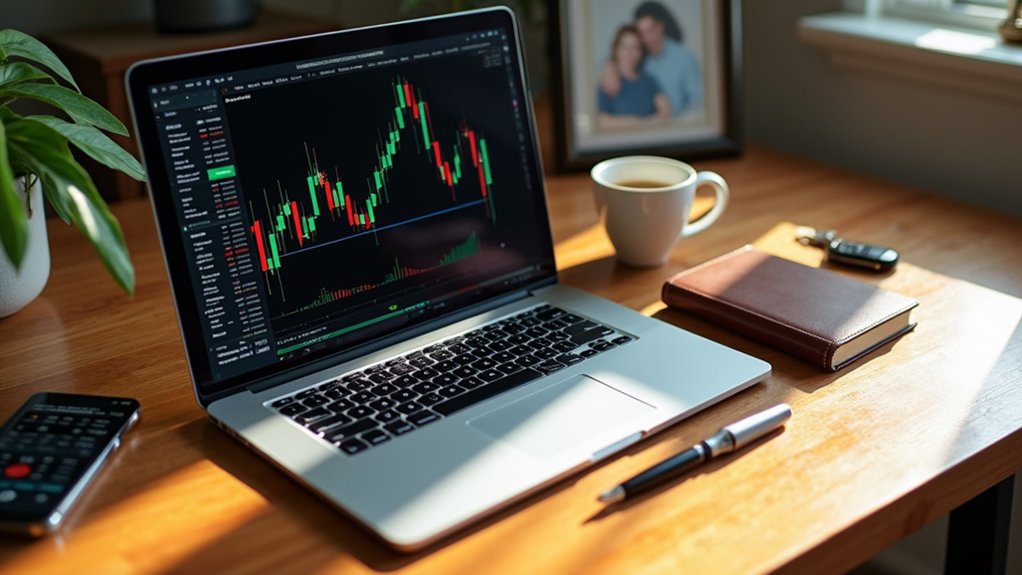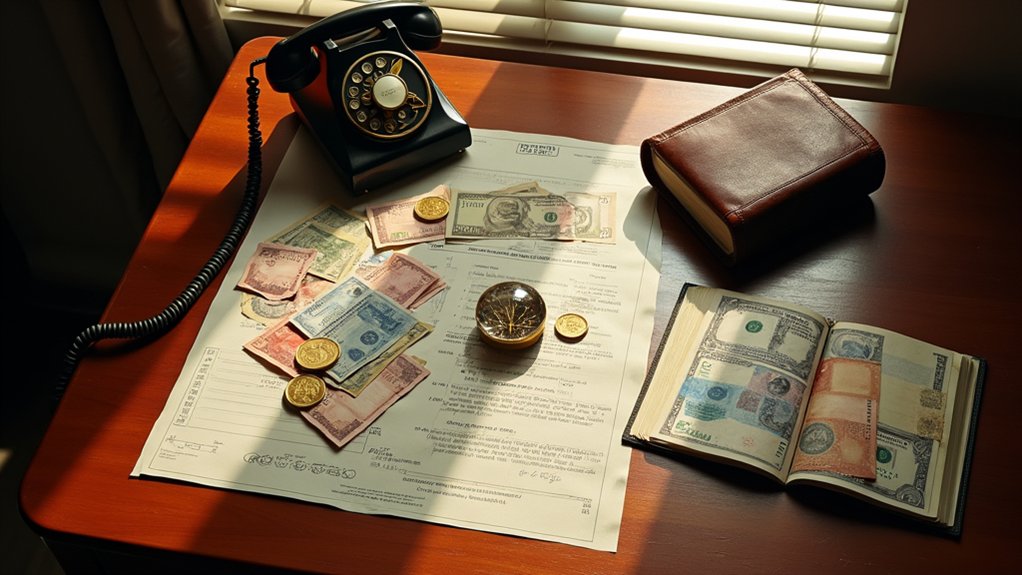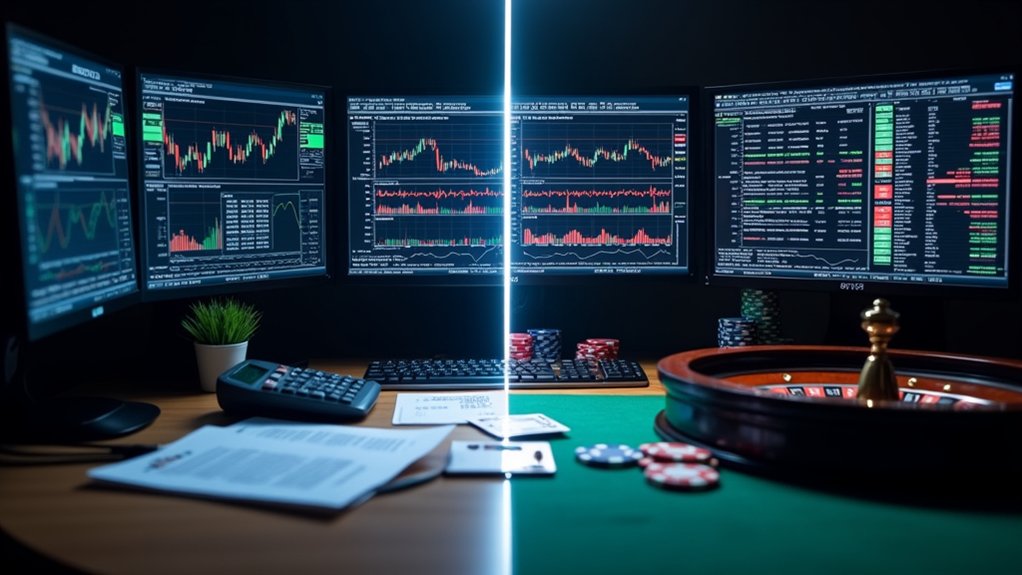Forex trading crushes 72% of day traders in a typical year because the deck is stacked against retail participants from the start. High leverage magnifies losses faster than gains, institutional players hold massive informational advantages, and execution issues—platform glitches, slippage, internet outages—turn small mistakes into account killers. Mastering the market demands two to five years of expensive trial and error, yet only 1% remain profitable after five years. The statistics don't lie, and the reasons run deeper than most traders realize.

Despite promises of quick profits and financial freedom plastered across social media feeds from Lagos to Nairobi, forex trading remains brutally difficult for the vast majority of African traders who attempt it. The numbers don't lie, and they're ugly. Seventy-two percent of day traders lose money over a typical year. After three years, only thirteen percent are still around. After five years? A measly one percent turn a profit.
The brutal truth: 72% of day traders lose money yearly, and only 1% profit after five years.
The market itself is a beast. Major pairs like EUR/USD move around 80-85 pips daily, creating opportunity sure, but also massive risk. Central banks in Washington, Frankfurt, and London make decisions that send currencies flying in unpredictable directions. A Nigerian trader checking charts in Abuja can watch his position evaporate because some official in Europe sneezed the wrong way during a press conference. Black swan events pop up constantly, making forecasting feel like throwing darts blindfolded.
Then there's leverage. African brokers love advertising it because it sounds sexy. Trade with fifty times your capital! What they don't shout is how leverage magnifies losses just as fast as gains. Day traders using margin average a negative return of 4.53 percent. Small price movements become account killers when leverage is involved. One bad trade and a Kenyan trader's entire deposit vanishes before breakfast. When account equity drops below the required margin level, brokers issue margin calls that force traders to deposit more funds or face automatic position closures, adding another layer of pressure to an already stressful situation. The ability to control larger positions with minimal capital creates an illusion of opportunity that masks the real danger of catastrophic losses.
Information overload makes everything worse. Traders in Accra, Johannesburg, or Cairo must process real-time data, interpret news from multiple continents, and compete against algorithms that execute thousands of trades per second. The learning curve is steep. Mastering forex typically requires two to five years of dedicated effort, and most African traders don't have that kind of runway when capital is already tight. Institutional players often possess informational edges that create market inefficiencies impossible for retail traders to overcome. Understanding African currency pairs adds another layer of complexity, as these instruments involve unique market dynamics and regional factors that differ significantly from major global pairs.
Operational challenges hit harder in African contexts. Internet outages in Kampala, power cuts in Haryana, platform glitches during volatile sessions. These technical failures can wipe out positions or prevent exits when markets turn violent. Execution speed matters, and African traders often face slippage issues that European counterparts rarely consider. Beyond technology issues, fraudulent broker schemes targeting inexperienced traders remain a persistent threat across the continent.
The statistics from EU-based brokers show over eighty percent of retail traders report losses. Proprietary trading firms, supposedly filled with skilled participants, only see sixteen percent profitability. Just three percent earn above fifty thousand dollars. Survivorship bias tricks people into thinking success is common because the few winners post flashy screenshots online. The median profit for those rare winners? Around thirteen thousand dollars. Not exactly the Lamborghini lifestyle promised in those Instagram ads scrolling through feeds in Dar es Salaam. Traders are significantly more likely to experience a fifty percent loss than achieve a fifty percent gain, highlighting the asymmetric risk profile that catches most participants off guard.
Common Questions
Which Forex Brokers Accept Mobile Money Deposits From African Traders?
Several brokers accept mobile money from African traders. Exness takes M-Pesa, MTN Mobile Money, and other local wallets—starting at just $1.
XM supports M-Pesa, Airtel Money, and MTN with a $5 minimum.
FXPesa targets East Africa with M-Pesa deposits from $5.
SuperForex offers mobile wallet options at $1 minimum.
IQ Option accepts mobile money at $10.
Most integrate through payment processors like DusuPay or iPay.
M-Pesa alone covers over 50 million users across seven African countries.
How Do Currency Restrictions in My Country Affect My Forex Trading?
Currency restrictions hammer African traders hard. They shrink the list of brokers willing to accept clients, jack up transaction costs through compliance hoops, and widen spreads because liquidity dries up.
Execution gets messy—slippage becomes routine, deposits and withdrawals crawl through bureaucratic sludge. Regulators shift rules without warning, sometimes banning major pairs overnight.
The result? Fewer choices, higher fees, worse fills, and constant uncertainty. Some traders slip into unregulated channels or black markets, trading transparency for access—risky business all around.
Can I Trade Forex Profitably With Unstable Internet in Rural Areas?
Trading forex profitably with spotty rural internet across Africa? Brutally hard.
Nigerian traders in rural areas miss trades when MTN drops. Kenyan villagers watch entries slip away during Safaricom outages. South African townships deal with Eskom power cuts killing connections mid-trade. The math is unforgiving—slippage eats profits, disconnections trigger stop-losses at bad prices, and news events pass by unwatched.
Mobile data helps some, but costs pile up fast. Profitability demands stable connections; rural reality rarely delivers that luxury consistently.
Are Offshore Brokers Regulated by African Financial Authorities Like CBN or FSA?
No. Offshore brokers are not regulated by African authorities like the CBN, FSCA, or CMA. They operate outside local jurisdictions, often holding licenses from places like Seychelles or Belize—which mean nothing under Nigerian, South African, or Kenyan law.
African regulators have actually ramped up enforcement, banning these brokers from advertising locally and warning traders about the risks. Offshore licenses don't grant legal authority to operate in Africa. Simple as that.
What Local Currency Pairs Should African Traders Focus on Besides Majors?
African traders should eye USD/ZAR and EUR/ZAR first—high liquidity, tighter spreads, actual tradeable depth.
USD/NGN and USD/KES bring volume but wild swings thanks to parallel market chaos and macro sensitivity.
GBP/ZAR offers volatility if you can stomach it.
Regional pairs like ZAR/MUR and ZAR/MWK exist but spreads widen fast.
Commodity-linked moves dominate ZAR pairs.
Local brokers in Kenya and South Africa actually understand these markets better than offshore platforms pretending they do.
